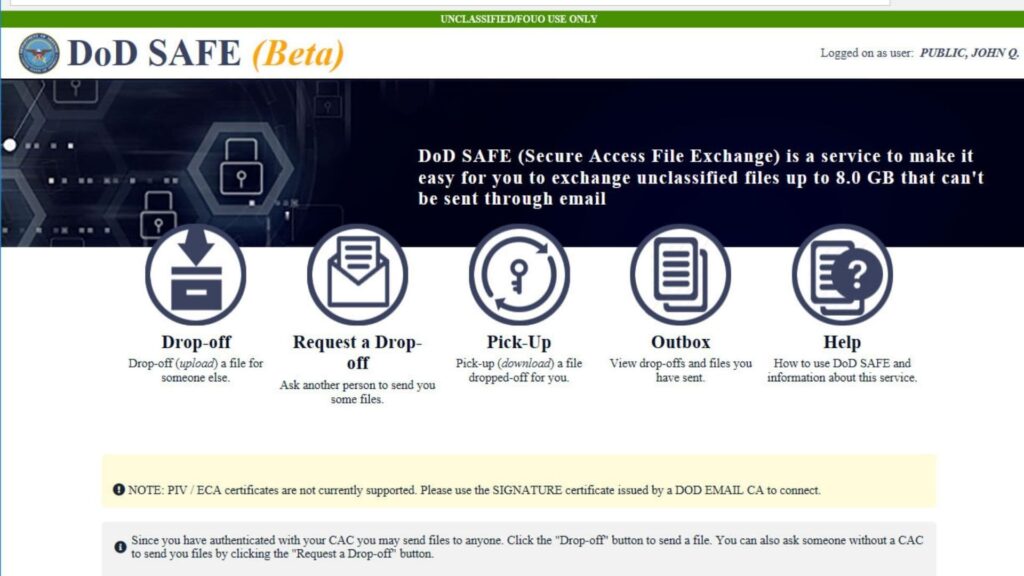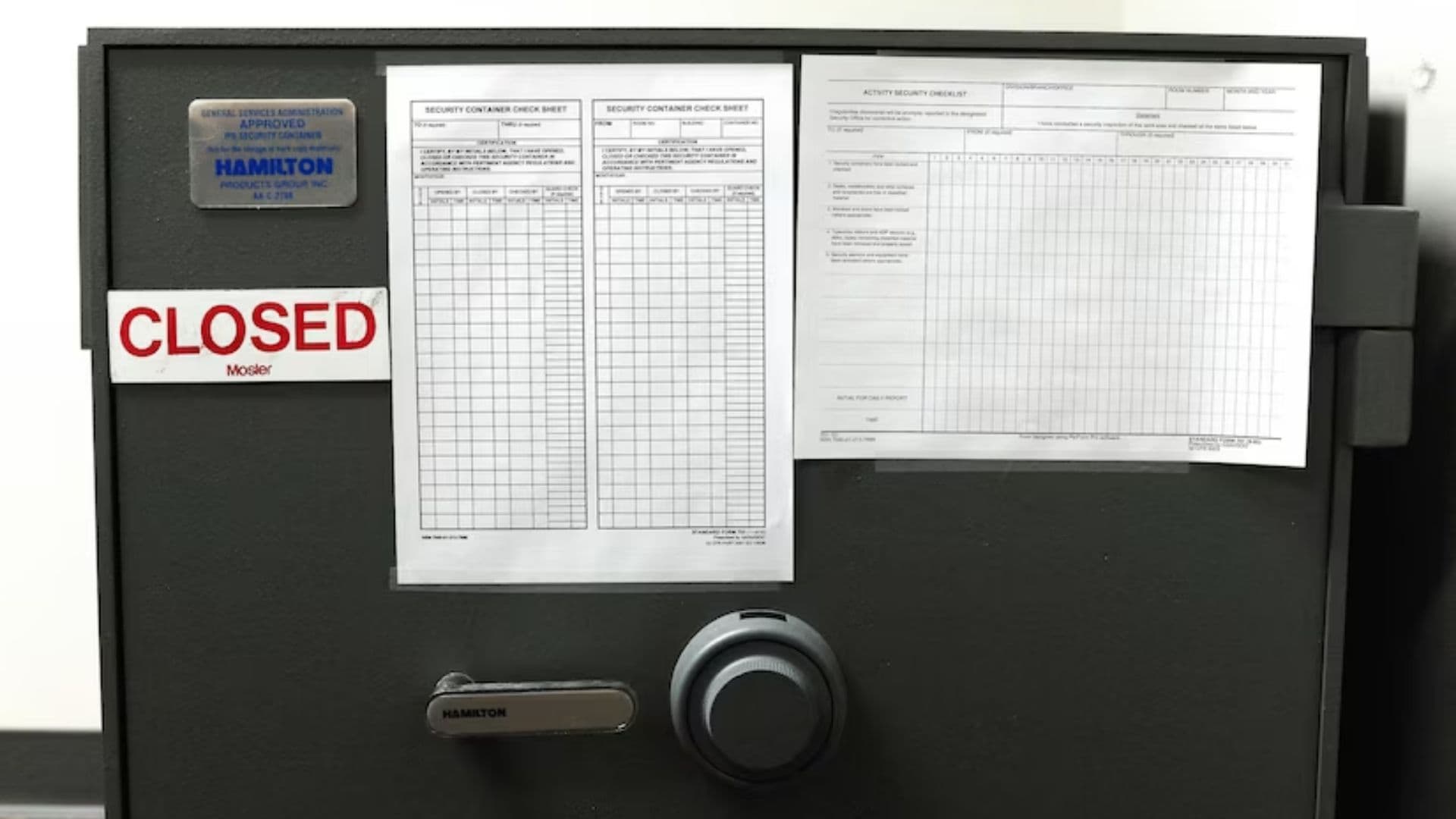DOD SAFE was launched in response to a directive from the DoD CIO. It offers a secure way for DoD employees to transfer files that are too large for email. It also encrypts files to protect against security threats.
You might also like: Sealed Package Instructions Dod Safe
You might also like: DISA File SAFE
You might also like: Does DoD Safe Require a CAC?
In addition to improving security, DOD SAFE addresses several usability issues that the previous system had. For example, it allows file transfers of up to 8 GB, which is four times larger than the old site’s limit. It also lets users download and send 25 files at once, storing them for seven days. Additionally, DOD SAFE uses package-level encryption, which is more secure than the previous system’s email-based encryption.
The new site also requires a Common Access Card (CAC) holder to be involved in the process of transferring a file. This is because a CAC is a secure chip that acts as an identity and authentication device. This can be time-consuming and inefficient if the file needs to be transferred urgently.
Moreover, some contractors find the DOD SAFE user interface to be complex and difficult to navigate. This can cause significant frustration, especially when transferring critical data in a tight timeframe. A better option is a commercial file-sharing service that offers industry-leading compliance, data governance, workflow automation, content lifecycle management, digital rights management, and content classification.

What is DOD SAFE?
DOD SAFE is a secure file-sharing portal used by the military to transfer files. It replaced the older AMRDEC Safe Access File Exchange system and offers package-level encryption to protect sensitive data both in transit and at rest. It also provides unlimited file uploads and downloads and has an optional FTP client for transferring large files.
Users must have a Common Access Card (CAC) to use DOD SAFE. This card acts as an authentication device; only a few employees can receive one. Obtaining a CAC is time-consuming, and the process can be difficult since employees with these cards may leave an organization at any time.
In addition to requiring a CAC, DOD SAFE also limits the maximum file size that can be transferred and requires all files to be encrypted. It also sets an expiration date for shared files, meaning that they will no longer be accessible after a certain amount of time.
Many third-party contractors and DOD contractors find this limit to be restrictive and are looking for an alternative that will allow them to share larger files with the U.S. Military or DOD contractors. Commercial file-sharing services like Sharetru can help meet these needs with industry-leading security, compliance, and workflow automation capabilities. Our platform has a proven track record of meeting the stringent requirements of leading defense agencies and is trusted by major government organizations around the world.

DoD SAFE Alternatives
Although the replacement, DOD SAFE, is an improvement, it’s still not ideal for some military contractors. It still requires a CAC, which can be difficult to obtain for third-party contractors that don’t work directly for the DoD. In addition, it’s not easy to use for large file transfers. Fortunately, some DoD SAFE alternatives offer better usability and security for sharing files with the military.
The DOD SAFE alternative, eBridge, offers a number of upgrades over the previous system. For example, it allows for file transfers up to 8 GB, which is an improvement over the previous 2 GB limit. It also gives users the option to access downloaded files for seven days instead of two days. Lastly, it uses more secure encryption to protect the data during transfer, according to DISA.
Another issue with the DOD SAFE alternative is that it’s not accessible to anyone who doesn’t have a CAC, even if they request a file from someone else. This makes it inconvenient for many organizations to use.
However, a new DOD SAFE alternative that uses advanced ID management technologies is in the works. It could provide a solution for a future DOD file transfer system that eliminates the need for CAC cards. This could involve biometric authentication, behavioral pattern recognition, and a cross-reference to users’ personal information.
When looking for alternatives to the Department of Defense Secure Access File Exchange (DOD SAFE), it’s important to consider secure file-sharing and collaboration platforms that offer similar security features and meet the specific needs of government or military organizations. Here are some alternatives to DOD SAFE:
Secure File Transfer Protocols (SFTP/FTPS): These are traditional methods of secure file transfer that rely on encryption and secure connections. Government agencies often use them for secure data exchange.
Microsoft OneDrive for Business: Offers robust security features and compliance capabilities, making it suitable for government and military organizations.
Box for Government: Box provides secure file storage and collaboration features with a specific focus on government agencies. It complies with various regulations and standards.
Google Workspace for Government: Google Workspace offers secure file-sharing and collaboration tools, and it has a government-specific version that meets federal compliance requirements.
Citrix ShareFile: Citrix provides secure file-sharing and data synchronization solutions with a focus on security and compliance.
Egnyte for Government: Egnyte offers a secure content collaboration platform tailored for government agencies, ensuring data protection and compliance.
Tresorit: Known for its end-to-end encryption and strong security features, Tresorit is suitable for organizations with strict security requirements.
Nextcloud: An open-source file-sharing and collaboration platform that can be deployed in a private, secure environment, providing complete control over data.
Syncplicity: A secure file-sharing solution designed for businesses and government organizations, offering control and security over shared files.
Thru: Thru specializes in large file transfer and secure content collaboration, making it suitable for organizations dealing with extensive data.
Huddle: A secure document collaboration platform that is used by government agencies in various countries for secure collaboration and file sharing.
Accellion: Accellion provides secure file sharing and governance solutions, often used in regulated industries like healthcare and government.
ownCloud: An open-source, self-hosted file-sharing and collaboration platform offering control and security over data.
IBM Aspera: Known for its high-speed file transfer capabilities, IBM Aspera is used in various industries, including government, for secure and efficient data transfer.
ProtonDrive: Developed by the creators of ProtonMail, ProtonDrive is a privacy-focused cloud storage and file-sharing service known for strong encryption and security.
